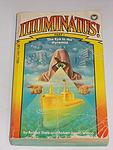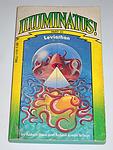The Greatest "Postmodern, Satire, Fiction, Speculative Fiction" Books Since 1900
Click to learn how this list is calculated.
This list represents a comprehensive and trusted collection of the greatest books. Developed through a specialized algorithm, it brings together 305 'best of' book lists to form a definitive guide to the world's most acclaimed books. For those interested in how these books are chosen, additional details can be found on the rankings page.
Genres
Postmodernism is a literary movement that emerged in the mid-20th century, characterized by a rejection of traditional narrative structures and a focus on self-reflexivity and intertextuality. Postmodern literature often features fragmented narratives, unreliable narrators, and a blurring of the lines between reality and fiction. It is a genre that challenges the notion of a single, objective truth and instead embraces the idea of multiple perspectives and interpretations. Postmodern literature is often seen as a response to the modernist movement that preceded it, and it continues to be a popular and influential category for contemporary writers.
Satire is a genre of literature that uses humor, irony, and exaggeration to criticize and ridicule human vices, follies, and shortcomings. It is a form of social commentary that aims to expose the flaws and absurdities of society, politics, and culture. Satirical books often employ sarcasm, wit, and parody to challenge the status quo and provoke thought and reflection in readers. Satire can be both entertaining and thought-provoking, and it has been used throughout history as a powerful tool for social and political critique.
Speculative fiction is an umbrella genre encompassing narrative fiction with supernatural or futuristic elements. This includes genres such as science fiction, fantasy, horror, supernatural fiction, superhero fiction, utopian and dystopian fiction, apocalyptic and post-apocalyptic fiction, and alternate history. The unifying factor of speculative fiction is its departure from the narrative constraints of reality, exploring imaginative and often profound questions that challenge our understanding of the world and our place within it. These stories often delve into themes like the human condition, social commentary, and the exploration of philosophical and ethical dilemmas through the lens of the fantastical or the yet-to-be-possible. By pushing the boundaries of the known, speculative fiction invites readers to consider the myriad possibilities of existence and the potential consequences of our actions in worlds that are, at once, vastly different from and eerily similar to our own.
Countries
Date Range
Reading Statistics
Click the button below to see how many of these books you've read!
Download
If you're interested in downloading this list as a CSV file for use in a spreadsheet application, you can easily do so by clicking the button below. Please note that to ensure a manageable file size and faster download, the CSV will include details for only the first 500 books.
Download-
1. Slaughterhouse-Five by Kurt Vonnegut
The novel follows the life of Billy Pilgrim, a World War II veteran who has become "unstuck in time," experiencing his life events out of order. This includes his experiences as a prisoner of war in Dresden during the Allies' firebombing, his post-war life as a successful optometrist, his abduction by aliens from the planet Tralfamadore, and his eventual death. The book is a critique of war and a demonstration of the destructive nature of time, with a nonlinear narrative that reflects the chaos and unpredictability of life.
The 54th Greatest Book of All Time -
2. Gravity's Rainbow by Thomas Pynchon
Set during the end of World War II, the novel follows Tyrone Slothrop, a lieutenant in the U.S. Army, as he tries to uncover the truth behind a mysterious device, the "Schwarzgerät", that the Germans are using in their V-2 rockets. The narrative is complex and multi-layered, filled with a vast array of characters and subplots, all connected by various themes such as paranoia, technology, and the destructive nature of war. The book is known for its encyclopedic nature and its challenging, postmodernist style.
The 182nd Greatest Book of All Time -
3. The Crying of Lot 49 by Thomas Pynchon
The novel follows the journey of a woman who stumbles upon a centuries-old conflict between two mail distribution companies when she is appointed the executor of her ex-lover's will. As she delves deeper into the mystery, she begins to question her own sanity and the reality of the conspiracy itself. The story explores themes of communication, interpretation, and the struggle to find meaning in a chaotic world.
The 378th Greatest Book of All Time -
4. The Third Policeman by Flann O'Brien
"The Third Policeman" is a darkly comedic and surreal novel about a nameless narrator who, after committing a murder to raise funds for his scholarly obsession with a bizarre pseudo-scientific theory, finds himself wandering in an eerie, nightmarish landscape. He encounters strange characters, including a pair of eccentric policemen who are obsessed with bicycles, and becomes embroiled in a series of increasingly absurd and ludicrous situations. The novel explores themes of existence, reality, and the nature of hell, with a twist ending that forces the reader to question everything they've read.
The 463rd Greatest Book of All Time -
5. Cat's Cradle by Kurt Vonnegut
This novel is a satirical commentary on modern man and his madness, exploring issues of science, technology, and religion. The story revolves around a narrator who becomes involved with the children of a deceased scientist, who had developed a substance capable of freezing water at room temperature. This substance, if misused, has the potential to end all life on earth. The novel is filled with strange and twisted characters, and culminates in a cataclysmic event, highlighting the dangers of uncontrolled technological advancement.
The 507th Greatest Book of All Time -
6. The Female Man by Joanna Russ
"The Female Man" is a thought-provoking science fiction novel that explores the lives of four women from different dimensions and time periods. As they navigate their respective worlds, the women confront gender inequality, societal expectations, and the limitations imposed on them by a patriarchal society. Through their encounters and conversations, the novel challenges traditional gender roles and offers a powerful critique of sexism and discrimination.
The 1632nd Greatest Book of All Time -
7. Insatiability by Stanisław Ignacy Witkiewicz
The novel is a dystopian narrative set in a future where a new Asian empire has conquered Europe. The story follows a young Polish man who, while initially indulging in hedonistic pursuits, becomes increasingly disillusioned with the world around him. As the new empire introduces a mysterious substance known as Murti-Bing pills, which create a sense of contentment and indifference in the populace, the protagonist grapples with the loss of individuality and the erosion of human spirit in society. The narrative is a critique of totalitarian regimes and the dangers of mass conformity.
The 2443rd Greatest Book of All Time -
8. La Saga/ Fuga de J. B./ The Saga/ Escape of J.B. by Gonzalo Torrente Ballester
"La Saga/ Fuga de J. B./ The Saga/ Escape of J.B." is a complex narrative that explores the themes of reality and fiction, and their intersection. The story revolves around a mysterious character, J.B., who escapes from a novel into the real world. As he navigates this new realm, the boundaries between the fictional world he came from and the reality he now inhabits become increasingly blurred, leading to a surreal and thought-provoking exploration of the nature of existence.
The 3791st Greatest Book of All Time -
9. La Vie Et Demie by Sony Labou Tansi
"La Vie Et Demie" is a thought-provoking novel set in an unnamed African country, where an oppressive regime has seized power and implemented a bizarre policy of dividing its citizens into "halves" and "wholes." The story follows the life of a young girl named Sophie, who is born as a "half" and faces discrimination and hardship due to her status. Through Sophie's experiences, the author explores themes of identity, inequality, and the dehumanizing effects of totalitarianism, offering a powerful critique of social and political systems.
The 4444th Greatest Book of All Time -
10. The Eye In The Pyramid by Robert Shea, Robert Anton Wilson
This book is the first volume in a series that blends historical fiction, conspiracy theories, and satire. It follows the surreal adventures of two detectives as they uncover a complex web of conspiracies involving secret societies, government agencies, and mystical occurrences. Set against the backdrop of the 1960s, the narrative delves into themes of paranoia, power, and the nature of reality, challenging the reader's perception of truth and fiction. Through a mix of humor, philosophy, and speculative fiction, the story embarks on a psychedelic journey that questions the very fabric of society and individual belief systems.
The 9451st Greatest Book of All Time -
11. Leviathan by Robert Shea, Robert Anton Wilson
This book is a satirical science fiction novel that delves into conspiracy theories, secret societies, and the nature of reality. It follows a diverse cast of characters, including detectives, spies, and occultists, as they navigate a complex plot involving the Illuminati, a shadowy organization believed to control world events. Set against a backdrop of historical and fictional events, the narrative weaves together disparate threads into a tapestry that challenges the reader's perception of truth and power. The novel's blend of humor, philosophy, and speculative fiction makes it a unique exploration of control, freedom, and the human condition.
The 9627th Greatest Book of All Time -
12. Galapagos by Kurt Vonnegut
"Galapagos" is a satirical novel that explores the future of humanity through the lens of a group of survivors stranded on the Galapagos Islands after a global pandemic. With a mix of dark humor and social commentary, the story follows the evolution of the human species over a million years, highlighting the absurdity of human nature and the impact of evolution on society.
The 10241st Greatest Book of All Time
Reading Statistics
Click the button below to see how many of these books you've read!
Download
If you're interested in downloading this list as a CSV file for use in a spreadsheet application, you can easily do so by clicking the button below. Please note that to ensure a manageable file size and faster download, the CSV will include details for only the first 500 books.
Download









